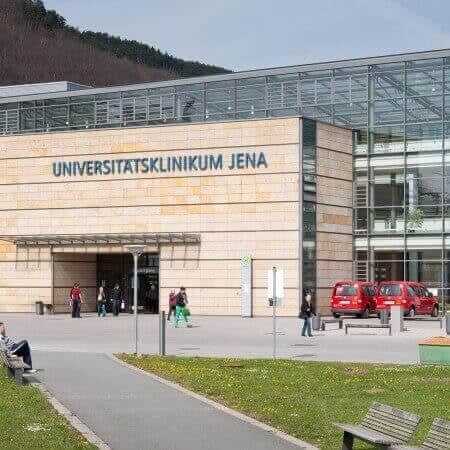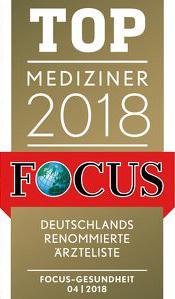Facial soft tissue injuries require complex surgical interventions to restore all functions of the face, as well as the appearance of a person. Germany has the world's best specialists in the field of plastic and reconstructive surgery. They use modern types of surgery to treat both the fresh injuries and their long-term consequences.
Content
- What are the types of facial soft tissue injuries?
- Goals of treatment
- Principles of treatment
- Face transplant
- Why is it worth undergoing treatment in Germany?
What are the types of facial soft tissue injuries?
Facial soft tissue injuries worsen the appearance of a person and disrupt the functions of the organs of the head, including the maxillofacial area. Most often, the damage occurs as a result of household, industrial, sports, or criminal injuries. The most severe soft tissue injuries occur in car accidents, animal bites, and burns. They are often combined with facial bone injuries and injuries of the tissues of the cerebral part of the skull.
Facial tissues are not only skin and muscles. Important organs, such as salivary glands, large nerves, blood vessels, and the tongue can also be affected. Patients often suffer from fractures of the nose, cheekbones, and jaws.
According to the categories of facial soft tissue trauma, there are gunshot and non-gunshot wounds, open or closed wounds, and multiple or combined wounds. A mechanical injury is caused by blunt or sharp objects, moving vehicles, flames, scalding liquid, or firearms.
In practice, the most common injuries are wounds from sharp objects. These are usually stab, cut, or chop wounds, caused by glass, razors, knives, or other objects. These are wounds causing the violation of the integrity of the skin. There are also usually facial injuries due to the impact. They are classified as bruises.
Goals of treatment
With isolated facial soft tissue injuries, a threat to the patient's life rarely occurs. Basically, the treatment is aimed at restoring the aesthetics of the face and all its functions. After the treatment, a person should look good, maintain their natural facial expressions, and be absent from any neurological complications.
Some facial injuries are dangerous. When large vessels are damaged, bleeding occurs, which can be life-threatening. To permanently stop these bleeds, doctors must resort to surgical techniques. In addition, foreign bodies left in a wound or wound contamination can cause dangerous, infectious complications. Animal bite wounds can transmit infectious diseases too.
The tasks of a doctor who deals with the treatment of facial soft tissue injuries are to:
- clean the wound;
- prevent infections;
- stop or prevent bleeding;
- prevent the development of neurological complications;
- restore skin, muscles, nerves, and blood vessels;
- restore damaged parts of the face (for example, a torn eyelid);
- improve a person's appearance, often through multiple surgical procedures that can be complemented by cosmetic procedures.
All goals of therapy are achievable if you undergo treatment in Germany. This country offers the services of talented surgeons, who will eliminate most of the consequences of a facial injury.
Principles of treatment
At the patient’s initial visit, the doctor will conduct a survey to obtain information about the way the injury was sustained. The next step is an examination. Whenever required, CT or MRI scans are used to verify the integrity of the cartilage, bones, and also to identify any possible foreign bodies in the wound.
Then, the primary surgical treatment is carried out. The doctor removes all impurities and foreign bodies. The specialist excises non-viable tissues and sutures the wound in layers. With primary infected wounds, antibiotic therapy is prescribed in order to prevent purulent complications.
With the help of instrumental diagnostics, doctors receive information about the state of the nerves and blood vessels in the area of injury. In some cases, they rupture, and aneurysms can form in the arteries. In such situations, the restoration of the integrity of blood vessels and nerves is required during the surgery.
Whenever possible, when performing the surgical intervention, the surgeon pulls together the edges of the wound and then sutures them. In this case, the wound heals by primary intention. A linear scar is formed in the suture area. In the future, it can be polished in order to even out the skin relief and achieve a better aesthetic result. The color of the scar becomes the same as the surrounding skin after a few months.
If there are not enough tissues to simply suture the wound together, a good aesthetic result is achieved by obtaining skin areas from other parts of the body. It is desirable that they be located in areas of low aesthetic significance, since scars will appear in the area from where the flaps are resected.
As a result of a closed injury, some patients preserve their skin, but there will be a deficit of deep tissues. In these cases, autologous adipose tissue injections help to achieve a good result.
Severe soft tissue injuries require reconstructive interventions. The wings of the nose, eyelids, lips, tongue, floor of the mouth, parotid chewing area, and ears are areas which can be affected in this way in patients. The complete or partial detachment of organs is possible.
If possible, doctors perform reconstruction with local tissues. Defects are eliminated by displaced flaps. Plastic repair with free flaps can be performed as well, if necessary. Modern microsurgical techniques make it possible to successfully close even large defects, as well as to recreate lost parts of the face.
Face transplant
In cases of severe facial soft tissue injuries, a face transplant is performed. This is a complex surgical procedure that is performed only in specialized clinics. The world's first face transplant was performed in Spain in 2010.
The operation involves the transfer of a specific tissue complex from the donor, which includes:
- skin;
- subcutaneous tissue;
- muscles;
- nerves;
- vessels;
- also, sometimes elements of the facial skeleton.
In world practice, more than half of all face transplants are partial, but full transplants are also performed. In a partial transplant, doctors engraft the patient donor forehead, cheeks, nose, lips, and chin tissues.
A full face transplant is one which is performed from the crown of the head to the neck. A good aesthetic result is achieved within a few weeks after such surgery. It takes several more years to restore the patient’s motor functions and skin sensitivity. Patients require a long rehabilitation after such surgical interventions. They learn to speak, eat, and smile again.
As with heart, lung, and other unpaired organ transplants, this transplant surgery is performed from a recently deceased donor. Less often, a socially deceased patient becomes a donor, a patient who no longer has consciousness due to brain death, but their life is supported by their respiratory and circulatory systems.
The face transplant is always an individual operation. It is long and lasts up to 12 hours. Up to 30 people take part in the surgery. The new face retains the features of the host, but also acquires some of the features of the donor. The connection of the tissues is performed by gluing, suturing, and the skin with fat is fastened with a laser.
Why is it worth undergoing treatment in Germany?
In cases of facial soft tissue injuries, you can undergo treatment in Germany. Here are a few reasons why it is better to receive treatment in this country:
- accurate diagnostics for receiving comprehensive information about the condition of the facial soft tissues and bones;
- the very latest types of surgery, which provide good aesthetic results;
- restoration of lost functions: chewing, swallowing, facial expressions, speech, etc.;
- the use of computer modeling, which helps to better plan the surgical intervention;
- successful interaction of doctors of different specializations to obtain the best aesthetic and functional outcomes (plastic, oral and maxillofacial surgeons, otolaryngologists, vascular surgeons);
- modern microsurgical techniques, suturing of blood vessels and nerves allow for the restoration of the blood supply and sensitivity of the face;
- minimal risk of complications due to damage to large vessels and nerves, low risk of purulent-septic complications.
To undergo treatment of soft facial tissue injury in Germany, please use the Booking Health service. On our website you have the opportunity to get up-to-date and accurate information about the cost of treatment in Germany, compare prices in different German hospitals, and book a medical care program at a favorable price. The treatment will be easier and quicker for you, and the cost of treatment in Germany will be lower.
You are welcome to leave your request on the Booking Health website. Our employee will contact you, provide information about treatment abroad, and answer all of your questions. We will take care of the organization of your trip to Germany. It is better to book a medical care program through our service, here are the reasons why:
- We have information about the effectiveness of the treatment of certain diseases in different hospitals, so we will select the best German hospital, whose doctors specialize in the treatment of facial soft tissue injuries and achieve the best results.
- We will help you to overcome the language barrier and establish your communication with the doctor of the German hospital.
- The waiting time for treatment will be reduced for you, and you will receive medical care on the most suitable dates for you.
- We will reduce the price. The cost of treatment in Germany will be lower than usual due to the elimination of overpricing and coefficients for foreign patients.
- Our specialists will solve any organizational issues: paperwork, transfers from the airport to the German hospital and back, hotel booking, and interpreting services.
- We will prepare your documents and translate them into English or German. The doctor will receive the necessary diagnostic information, and you will not have to repeat any previously performed diagnostic procedures.
- We will stay in contact with the German hospital after the completion of your treatment.
- We will arrange additional diagnostics and treatment, if required.
- We will buy medicines in the other country and forward them to your native country.
While the best specialists in the world are taking care of your health, the Booking Health staff will help you to reduce the cost of treatment in Germany and take care of all your travel arrangements.
Authors:
The article was edited by medical experts, board certified doctors Dr. Nadezhda Ivanisova and Dr. Sergey Pashchenko. For the treatment of the conditions referred to in the article, you must consult a doctor; the information in the article is not intended for self-medication!
Sources:
Medscape
UpToDate
Verywell Health
















